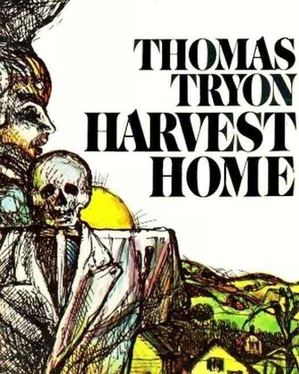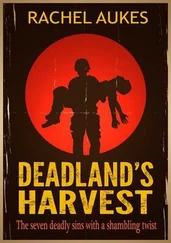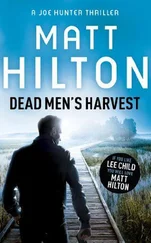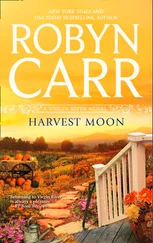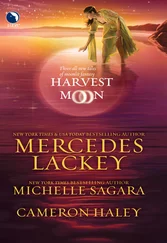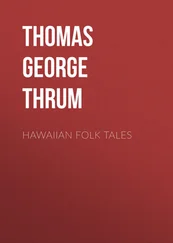Thomas Tryon - Harvest Home
Здесь есть возможность читать онлайн «Thomas Tryon - Harvest Home» весь текст электронной книги совершенно бесплатно (целиком полную версию без сокращений). В некоторых случаях можно слушать аудио, скачать через торрент в формате fb2 и присутствует краткое содержание. Жанр: Ужасы и Мистика, на английском языке. Описание произведения, (предисловие) а так же отзывы посетителей доступны на портале библиотеки ЛибКат.
- Название:Harvest Home
- Автор:
- Жанр:
- Год:неизвестен
- ISBN:нет данных
- Рейтинг книги:5 / 5. Голосов: 1
-
Избранное:Добавить в избранное
- Отзывы:
-
Ваша оценка:
- 100
- 1
- 2
- 3
- 4
- 5
Harvest Home: краткое содержание, описание и аннотация
Предлагаем к чтению аннотацию, описание, краткое содержание или предисловие (зависит от того, что написал сам автор книги «Harvest Home»). Если вы не нашли необходимую информацию о книге — напишите в комментариях, мы постараемся отыскать её.
For Ned and his family, Cornwall Coombe was to be come a place of ultimate horror.
Harvest Home — читать онлайн бесплатно полную книгу (весь текст) целиком
Ниже представлен текст книги, разбитый по страницам. Система сохранения места последней прочитанной страницы, позволяет с удобством читать онлайн бесплатно книгу «Harvest Home», без необходимости каждый раз заново искать на чём Вы остановились. Поставьте закладку, и сможете в любой момент перейти на страницу, на которой закончили чтение.
Интервал:
Закладка:
Then, largish, dilapidated, forlorn, the house appeared on our left. We had passed the smaller house next door, on whose porch sat a man wearing dark glasses, while a woman worked in a flower bed close to the hedge separating them from the adjoining property. Perhaps I might have driven on by, but my eye was attracted to the brickwork on the chimneys, carefully executed work that said something to my artist’s eye. But it wasn’t the chimneys, really; it was the house. I was drawn to it as though it were fate itself, Kismet in clapboards. Without thinking, I swerved across the road and pulled into the drive alongside the hedge. Kate bounded out and ran up on the porch, while Beth and I sat craning our necks behind the windshield.
Clearly, the place was empty. The patchy lawn had gone to crab grass, there were weeds in the flower beds, the windows were bare with some of the panes broken.
“Oh, darling, look,” Beth breathed, opening the car door, and together we went across the lawn to the side of the house, looking up at the massive clumps of shrubbery under the windows. I recognized them as lilac bushes, and knew why she turned to me with her smile; I had brought her lilacs in Paris one spring. At the corner of the house there was a large locust tree, and up in the branches we could see a last-year’s nest. Abandoned nest, abandoned house. We spent some time peeking behind cupped hands through grimy windows along the front; then Kate, who had gone adventuring on her own, came reporting a discovery: a tumble-down chicken house behind the garage. While she ran around it making hen squawks I let its ample proportions begin giving me ideas about a studio. On the pitched roof was an empty dovecote, and beyond what must once have been a stable.
Halfway down the lawn was a large beech tree with the remnants of a birdhouse dangling from a lower limb. A hundred or more branches sprang from a triple fork which in turn grew from an enormous trunk, with thick, gnarled roots spreading out at the base. A beautiful tree, lofty and immense, gray, wrinkled, scruffy; it looked like a grand old elephant.
I put my arm around Beth’s shoulders and walked with her back across the lawn. Out in front, we went up on the sagging porch and peeked some more while Kate tried the door, which was locked. The living and dining rooms revealed some interesting paneled wainscoting and wide pegged floors, and the former a large fireplace.
We found our prowlings had not gone unobserved. The woman from next door stood at the bottom of the steps, looking up at us. She listened affably enough as I explained we were interested in old houses-not strictly a lie-and she smiled when I inquired if anyone had a key. She told us the place had been shut up for years; it belonged to someone named, appropriately, Penrose, the village postmistress, but the upkeep had been too much and she had moved to other quarters.
Was the house by any chance for sale? I inquired.
By no chance, the woman replied. Not unfriendly, just firm. 1 wondered if perhaps she didn’t want neighbors.
Would it be possible to speak with Mrs. Penrose? I persisted.
Miss Penrose, she corrected, Miss Tamar Penrose would be at the post office, unless she’d closed and gone to the field with the others. But, the woman added, Miss Penrose would definitely not be interested in selling.
I descended the rickety steps with Beth. “Quite a gang out in the field.”
The woman laughed. “You’ve come on Planting Day.”
I said we would try the post office, and thanked her. I took the Polaroid camera from the glove compartment and snapped a picture. Beth and Kate were waiting in the car, and as I got in, the woman stood on the walk, watching. On the other side of the hedge I heard the sound of a voice reading aloud, and caught snatches of a paragraph I thought I recognized from Mark Twain’s Life on the Mississippi.
The post office was closed. I looked at Beth and shrugged; clearly it wasn’t in the cards, and I wasn’t about to track the lady down in some cornfield. Beth’s wistful smile said what it had at other times: Never mind, there’s a house for us somewhere. Leaving Kate to acquaint herself with the sheep, we walked together across the Common to the church, where a quaint black buggy with a dapper mare awaited an absent owner. In the churchyard a figure was laying flowers on a grave, an old woman in voluminous black, with something white on her head. Having no wish to intrude on her privacy, we kept our distance, and instead of reading the tombstone inscriptions as Beth had suggested, we admired the clock tower and belfry in the steeple. When we left I saw the old woman observing us.
As we returned to the car, we heard Kate calling to come and take her picture with the sheep. The shot came out darkish and I tried another; it was better. Pocketing the first, I handed the second to Kate, who laughed and showed it to Beth. It was a good one, a last memento of Cornwall Coombe: Kate’s smile telling her delight to be amid such exotic creatures as sheep, behind her the Common, the old New England church. Then, looking again, I saw in the photograph, standing on the church steps, the same figure we had seen in the graveyard. I glanced up quickly and saw her watching us from the spot where the camera had caught her.
Again on impulse, I left Beth and Kate and went back across the Common to inquire of the old woman if she knew anything about the empty house in Penrose Lane. She pointed to the post office, and I said yes, I knew about Miss Penrose, but did she think the property might be shown? She paused to consider, then replied she had no way of telling; you never knew how folks might behave around here. I reached in my pocket for a pencil, took out the first snapshot, and scribbled our New York telephone number on the back. If, I said, she talked to the post-office lady, and if the property might be shown, would she call me collect? She accepted the photo, looked at the number, then turned it over and peered at the picture. Nice girl, she said; handsome family. Then she made another remark as she started down the steps.
“Beg pardon?” I asked, not quite catching it.
“I said, ‘Handsome is as handsome does.’”
The picture disappeared among the ample folds of her skirts as she marched to the buggy at the curb. Getting in, she glanced at me again, and I thought I saw a twinkle in the ancient eyes. “Well, must get on for the plantin’.”
“What do they plant?” I asked.
“Corn,” she replied as the buggy rattled away.
There was little talk for the rest of our journey home. I was disappointed, and though Beth and I didn’t exchange thoughts we each knew what the other was thinking. We had not driven very far when Kate started sneezing; then she began a mild attack of asthma. We always kept a Medihaler in the glove compartment, an oral device which helped reduce the chest congestion, and when she had found relief I stepped on the gas.
If it had been spring in the country, winter still hung on in the city, dirty, slushy, blowy. Our West Side apartment seemed drab and dark and, as if for the first time, I saw how badly it needed repainting. Beth, naturally enough, was depressed following the death of her father, though she tried not to show it. Kate’s asthma attack had worsened, and she had to be kept out of school again.
I was edgy and nervous, and had another row at the office with old Osborne regarding the Staples Coffee account. The argument concluded, I burst out, ready to quit, and though cooler heads momentarily prevailed, I knew my days were numbered. The following noon, I resigned my position by mutual agreement. By four the same afternoon, Sandler-Haigh heard I was available and called to make me an offer; I said I’d think it over.
I had fitted out a small room in the back of the apartment as a kind of studio where I had been painting in my spare time, and there I retired, nursing my ruffled ego and telling myself now was the time. Get out of the rat race, don’t go back, do what you’ve always wanted to do. Beth agreed. We had saved a fair bit; there was a lot more to come from her father’s estate, and it seemed a good time, she pointed out, to take stock, I had begun as an artist, why not continue? I said I’d think that over, too-though I’d been thinking it over for two years or more.
Читать дальшеИнтервал:
Закладка:
Похожие книги на «Harvest Home»
Представляем Вашему вниманию похожие книги на «Harvest Home» списком для выбора. Мы отобрали схожую по названию и смыслу литературу в надежде предоставить читателям больше вариантов отыскать новые, интересные, ещё непрочитанные произведения.
Обсуждение, отзывы о книге «Harvest Home» и просто собственные мнения читателей. Оставьте ваши комментарии, напишите, что Вы думаете о произведении, его смысле или главных героях. Укажите что конкретно понравилось, а что нет, и почему Вы так считаете.
